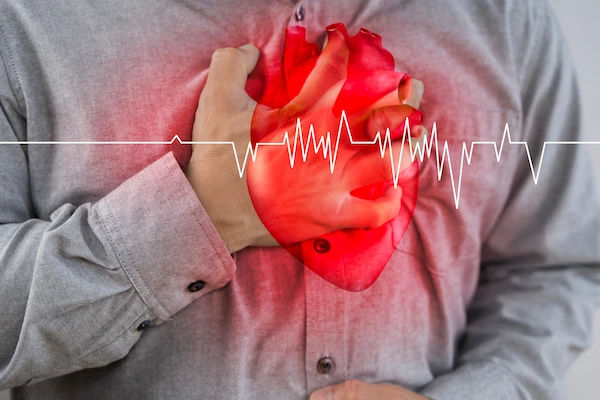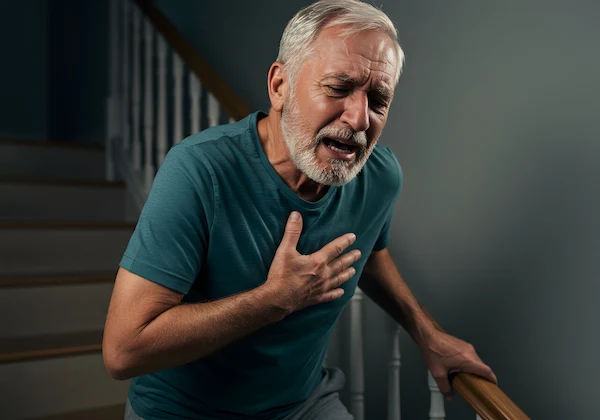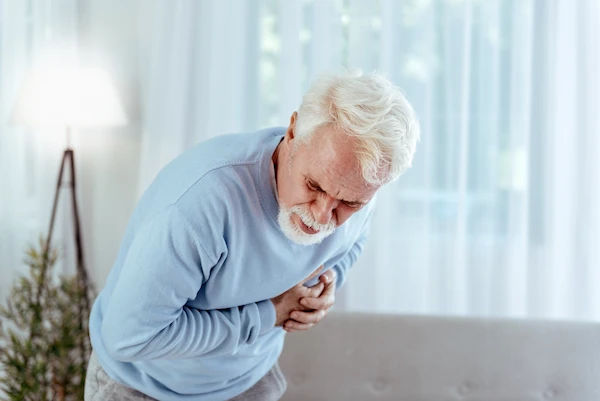- male
- 65 Years
- 22/01/2025
I'm really worried because my father has an LVEF of 35% as per his 2D echo report. I'm trying to figure out what kind of treatment he might need. Should we be considering an angiography? He hasn't had a heart attack and doesn't feel any chest pain. I did some reading and think maybe it's arrhythmia because about three years ago, he nearly fainted while cycling due to stress. Since then, he's been on medication for hypertension. Could you tell me what steps we should take next?
Answered by 1 Apollo Doctors
Since the patients LVEF (left ventricular ejection fraction) is 35.. indicates that he is having severe heart damage .. Some of the causes uncontrolled hypertension , heart muscle diseasesex cardiomyopathy, heart attack and heart valve issues..Angiography is needed since echo report reveals severe heart dysfunction.Treatment invoves ACE inhibitors ,calcium channel blockers and beta blockers..
Dr. Anshul Suggests...
Consult a Cardiologist
Answered 04/07/2025
0
0

More Cardiology Health Queries
View allI'm a 29-year-old male with a BMI of 32, and I've been dealing with this weird chest pain for the last 6 to 8 months. It kind of moves around between the right and left side of my chest, and every morning there's this dull pain on the left side that just goes away after a while. It's starting to bug me. Could this be something serious, or is it just normal?
You may be experiencing musculoskeletal chest pain, especially given the fluctuating nature of the pain and the fact that it is more noticeable in the morning and improves throughout the day. However, it's important to rule out any other potential causes of chest pain. Given your age, gender, and BMI, it's important to consider lifestyle factors that may be contributing to your symptoms. I recommend trying over-the-counter pain relievers such as acetaminophen or ibuprofen for relief. Additionally, incorporating regular exercise, maintaining a healthy weight, and improving your posture may help alleviate the chest pain. If the pain persists or worsens, it's important to consult with a healthcare professional for further evaluation and management.
Answered by 1 Apollo Doctors
I'm really puzzled about my mom's test results. Her echocardiogram showed an LVEF of 40-45, but a recent cardiac MRI said it's just 25. This just doesn't seem right because she's not showing any serious symptomsno shortness of breath, no swelling in her legs or stomach. She goes about her day without any issues at all. Could there be an error with the cardiac MRI?
It is possible that there could be a discrepancy between the two imaging tests. However, it is important to follow up with your cardiologist to discuss these findings and determine the best course of action. In the meantime, medications like Carvedilol (Coreg) at a dosage of 6.25mg twice daily and Lisinopril (Zestril) at a dosage of 5mg once daily can be considered to help improve heart function.
Answered by 1 Apollo Doctors
My dad is 61 and had CABG surgery two weeks ago with 4 grafts. He's also diabetic. How long will his recovery take to get back to normal and can we expect any future heart issues after the bypass
It typically takes 6-12 weeks to recover fully from coronary artery bypass graft (CABG) surgery, but individual recovery times can vary. After the initial recovery period, most individuals can resume normal activities, but the possibility of future heart issues, like graft blockage or progression of other heart conditions, remains
Answered by 1 Apollo Doctors
Disclaimer: Answers on Apollo 247 are not intended to replace your doctor advice. Always seek help of a professional doctor in case of an medical emergency or ailment.





